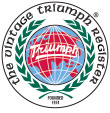Tire Codes Information
Information provided by Jeff Berton
For tires using the P-metric designation (e.g., P245/50ZR16)
Format:
[Code][Width]/[Aspect][Speed][Construction][Size]
Code:
P = Passenger LT = Light truck T = Temporary LTP = Light truck, personal use
Width:
Width at widest point, sidewall to sidewall, in millimeters
Aspect Ratio:
Tire height in mm, measured tread to bead, divided by width above, multiplied by one hundred.
Speed ratings:
(The maximum speed the tire can maintain at its maximum load rating) Q - 100 mph R - 106 mph S - 112 mph T - 118 mph U - 124 mph H - 130 mph V - 149 mph W - 168 mph Z - more than 168 mph
Construction:
R - Radial ply B - Bias belted D - Diagonal bias
Size:
The diameter of the wheel the tire is designed to be mounted on, in inches.
Other information:
Maximum Air Pressure - This is the max pressure the tire is designed to hold
(note this is more than the recommended inflation
pressure)
Maximum Load - Weight the tire can support
Load Index - A code that indicates the maximum weight the tire can
carry at its speed indicated by its speed rating
Construction - Tells the number and type of plies used in the
construction of the tread and sidewall
DOT Serial Number - Identifies the plant, manufacturer, and date of
production
Tread Wear Index - A rating of the tire's resistance to wear. 100 is the
reference. A 250 rating indicates 2.5 times the wear
resistance of the reference tire. This number cannot
be accurately translated to mileage.
Traction Index - A rating of the tire's ability to stop on wet pavement.
There are three grades, A, B, and C, with A being the
best. This index does not reflect the tire's traction
performance on dry, snowy, or icy pavement.
Temperature Index - A rating of the tire's ability to dissipate and resist
heat. There are three grades, A, B, and C, with A
being the best.
